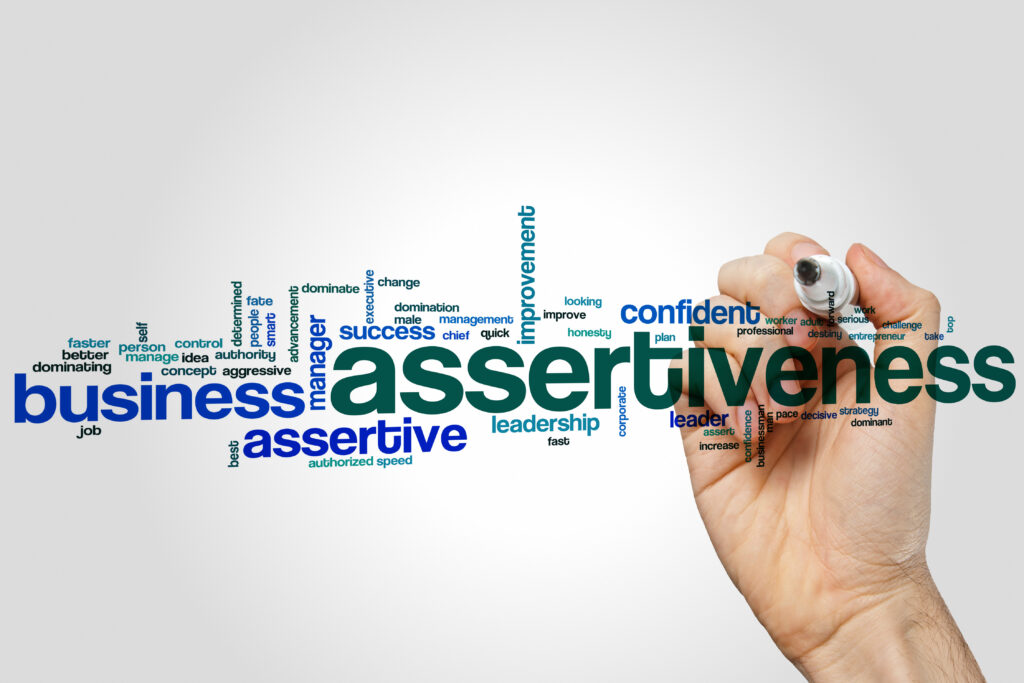How to be assertive in natural British English

Can you be both assertive and polite in natural British English? Well, as far as national stereotypes go, it would be hard to find an English language learner from around the world who, when asked to describe the British, doesn’t immediately say ‘Polite.’ It’s true. We use ‘please’ and ‘thank you’ what seems like all day, every day; car drivers stop at zebra crossings for pedestrians; we help strangers carry heavy bags to the top of the stairs in stations and airports. But does that mean we always put others first? Does it mean that we are pushovers? No. It means that there is a fine line between being assertive and rude, compared to assertive and polite. In case you have accidentally crossed the line and been met with distain at your (accidental) rudeness, I’ve compiled some natural British phrases which are ready-to-go and will help you to assert your wishes, allowing you to get your point across in a polite but firm way in various situations.
Language list
Assertive, polite negotiation
- I’m looking to pay about… £X. (neutral) meaning = ‘suggest an initial price’
- I was hoping to get it for around £X. (neutral) meaning = ‘suggest alternative price’
- I’m willing to go up to £X. (neutral) meaning = ‘my maximum price is’
- I’m willing to go down to £X. (neutral) meaning = ‘my minimum price is’
- I’m afraid that’s not going to work for me. (neutral) meaning = ‘no’
Assertively hurrying others up
- As I’m sure you will understand, I’ve been waiting for (insert time) and I need to… (neutral)
- Is it possible to fast track this? (neutral) meaning = ‘do this faster’
- Actually, I really do need it now, please. (neutral) meaning = ‘hurry up!’
Correcting others
- Actually, what I meant was…(neutral) meaning = ‘you have misinterpreted what I said’
- I’m afraid you’ve misunderstood… (neutral)
- That’s not quite what I was saying…(neutral) meaning = ‘you haven’t understood me’
- I see where you are coming from but… (neutral) meaning = ‘I understand your point of view’
Interrupting others
- If I may… [pause] (neutral) meaning = ‘let me talk, please’
- As I was saying… (neutral)
- I hear you, but my point is that… (neutral) meaning = ‘yes, but…’
- That may be true, but… (neutral) meaning = ‘OK, but…’
Reiterating your point of view
- If I could just go back to the point I was making…(neutral)
- To reiterate… (semi-formal)
- If I could just come back to my point about… (neutral) meaning = ‘return to’
- I’d like to re-emphasise that… (semi-formal) meaning = ‘repeat with emphasis’
- To re-state what I was saying before… (semi-formal) meaning = ‘repeat’
- ….. is really important to consider because… (semi-formal) meaning = ‘should be highlighted’
Escalating
- It would be better if a manager dealt with this. (neutral) meaning = ‘I want a superior involved’
- I think this may be a case for the management. (neutral) meaning = ‘I want a superior involved’
- Please may I speak to your manager? (neutral)
If any of these phrases help you to be more assertive (in a polite way!) when speaking natural British English, let us know!
We love to hear your success stories here at PS English!
Take care,
Emma
Interested in learning natural British English?
As a school of English in London, we specialise in private lessons
– both face-to-face and online.
We offer a free consultation to all students. Please click here to book your free consultation.
If you are looking for a tailor-made private English lesson
with flexibility and a high quality native English teacher, PS English can help you.
We look forward to hearing from you!

